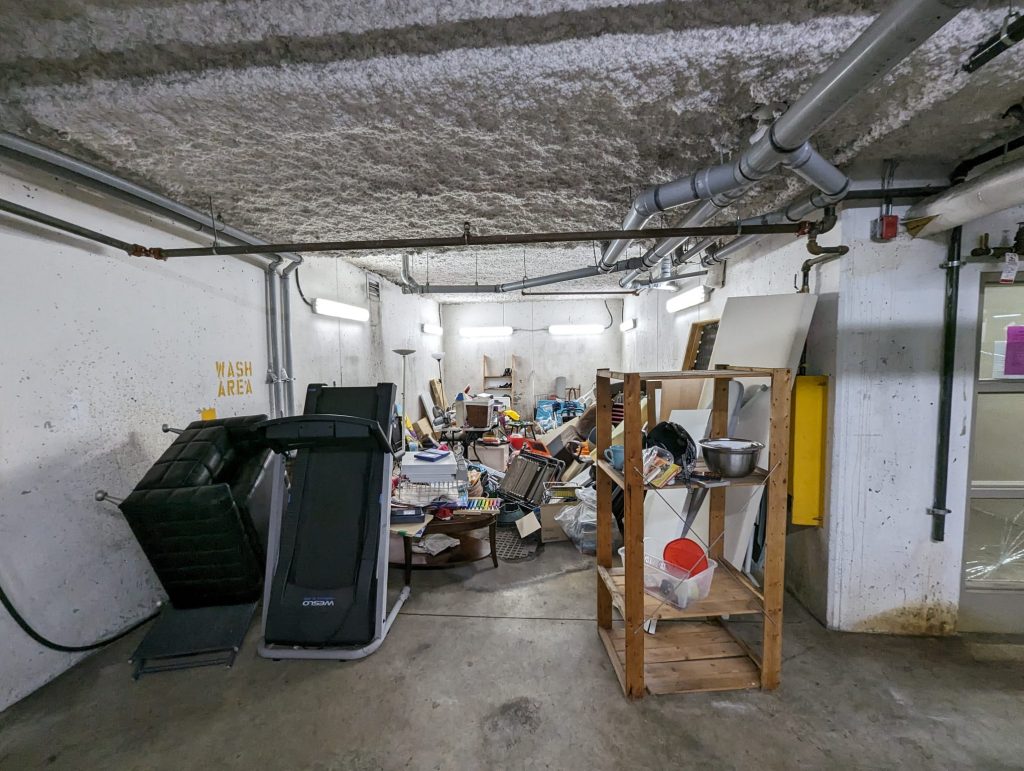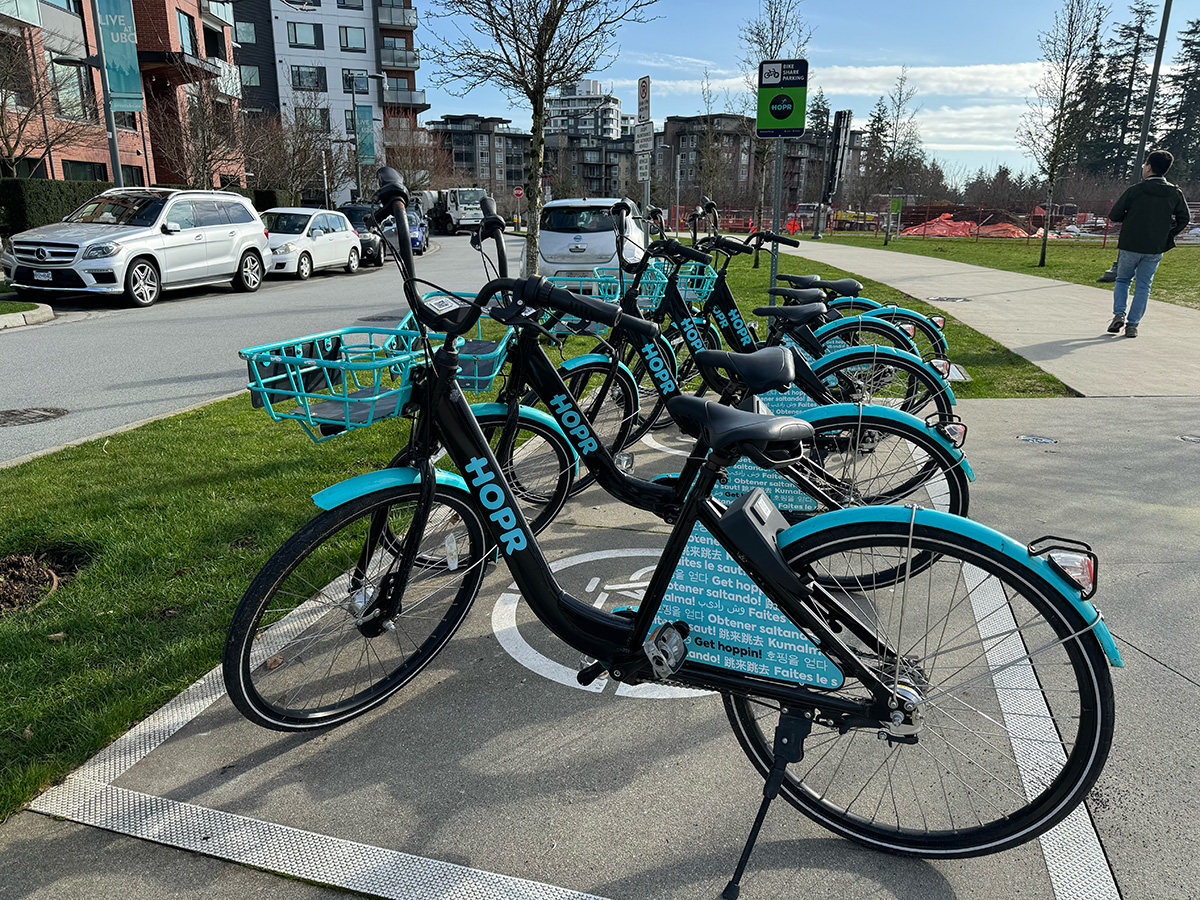A wave of sustainability and community engagement is taking shape on campus through the adoption of practices associated with the concept of a sharing economy.
From bike and car sharing programs to yard sales and community gardening, UBC and the University Neighborhoods Association (UNA) are setting benchmarks for environmental stewardship and social cohesion.
Individuals sharing resources with each other is the backbone of a sharing economy, and this shift is not only promoting greener living but also fostering a sense of community among residents.
The Campus Resident has focused on several transformative efforts that are putting the sharing economy into practice.
Share Mobility: A Ride Towards Sustainability
Adam Hyslop, the manager of transportation planning at UBC, is at the forefront of UBC’s commitment to expanding share mobility as a cornerstone of its sustainable transportation strategy. In alignment with UBC’s climate action and transportation plans, these initiatives are crucial for meeting the university’s climate action and sustainable transportation targets. These services include:
Bike Share: UBC’s on-campus bike share program, operated by HOPR, has been running since 2019 and includes 200 bikes located at over 90 hubs across both academic and neighbourhood areas of campus. The City of Vancouver’s successful e-bike and bike share program operated by Mobi also began serving the campus in November 2023, enabling trips between UBC and Mobi stations throughout Vancouver. Thanks in part to funding from the province and TransLink, Hyslop said he anticipates 10–15 Mobi stations will be active on campus by the end of this year, with space for over 200 e-bikes.
More information on campus bike share programs and related discounts available to the UBC community can be found here.
Car Share: The availability of car share vehic l e s makes it possible for community members to use sustainable modes of transportation by having access to a hybrid or fully electric vehicle for occasional use at a relatively affordable cost.
On-campus car share options include round-trip or two-way car share service provided by Modo and one-way or free-floating car share service provided by Evo.
Over 20 Modo vehicles are permanently located on campus, parked mostly within neighbourhood areas. Evo cars move around freely but can typically be found within UBC parking lots and parkades or in designated car share parking areas in the neighbourhoods.
More information on campus car share programs can be found here.
Enhancing Community Engagements
Robyn Chan, a sustainability specialist with the UNA, sheds light on how sharing economy initiatives extend beyond transportation to foster a sense of community and environmental responsibility.
Discussing the impact of yard sales, bike repair tool sharing, and community gardening, Chan illustrates the multifaceted approach to sustainability on campus.

Yard sales, for instance, are more than mere transactions; they are community-building events, she says. “Yard sales contribute to the UNA’s social and environmental sustainability goals.”
But, she explains, “they also help keep things out of the landfill and help residents find good condition, used goods.”
The bike repair stations and workshops further this ethos, making sustainable transportation and self-sufficiency more accessible.
The community gardens at the university neighbourhoods stand out as green spaces that promote environmental engagement and provide fresh produce.
“The UNA has over 200 community garden plots,” Chan says. “They are another great community building tool and also provide residents with opportunities to get outside, get dirty, and grow their own food.”
‘Junk Amnesty Days’: A Model of Practical Sustainability
So-called Junk Amnesty Days at the Keenleyside building in Wesbrook Place showcase a practical approach to sustainability. Initiated in November 2021, this semi-annual event offers a community-driven solution to waste reduction, allowing residents to discard unwanted items with the strata council covering removal costs.
“This event has proven to be extremely popular and greatly reduces the problem of unwanted junk,” says Mary McBride, president of the Keenleyside strata council.
The initiative not only unclutters the physical space but encourages a mindset of recycling and reusing among residents.
The initiative’s framework is simple yet powerful, transforming the building’s car wash space into a collection point for reusable or recyclable items over four days.

This process not only facilitates environmentally responsible disposal but also promotes a culture of reuse among Keenelyside’s residents. “It is not a huge effort by council, and student renters and long-term residents both benefit,” McBride says.
Challenges and Innovations
While sharing economy initiatives in the university neighbourhoods have garnered praise and participation, there are also challenges.
Space constraints and the need for a sustainable balance between growth and resource management are recurrent themes. Chan discusses these hurdles, particularly in the context of tool sharing and community gardening. “We always have a challenge with space when it comes to finding places for sharing and repairing initiatives,” Chan says.
Yet, she remains optimistic, saying there are “really great opportunities for collaboration with UBC” and the potential for new projects that the Neighbourhood Climate Action Plan may usher in.
The enthusiasm for sharing economy practices also extends beyond current offerings, with the community eagerly anticipating the introduction of new programs and platforms.
Among these, the MiniVillage app stands out as an example of how technology can facilitate the sharing of resources and strengthen community bonds.
Chan highlights the potential of the app. “It creates so many creative opportunities for people to share.”
The platform exemplifies the innovative approach to expanding the sharing economy, enabling residents to easily share goods and services, thereby enhancing the community’s sustainability efforts.
The commitment to expanding these initiatives is matched by a proactive approach to overcoming obstacles.
“We are exploring a tool library and the best way to implement one for UNA residents,” Chan says, underscoring the community’s appetite for more inclusive and diverse sharing options.
Community Feedback and Future Directions
The positive feedback from residents about these initiatives offers insights into their impact and areas for growth. “We measure success by the amount of people that come to our sales and workshops or use the Green Depot,” Chan says.
This feedback loop between the community and program organizers is crucial for refining and expanding shareing economy practices and meeting evolving needs and preferences.
Looking to the future, the sharing economy at UBC is poised for further innovation and expansion.
The integration of new technologies, the exploration of new sharing platforms, and the continuous push towards sustainability promises to enrich the sharing economy landscape.
As the UNA and UBC continue to explore these new frontiers, the sharing economy lifestyle is set to become an even more integral part of the community experience.
JENNIFER CHEN IS A MEMBER OF THE CAMPUS RESIDENT NEWSPAPER COMMITTEE.
